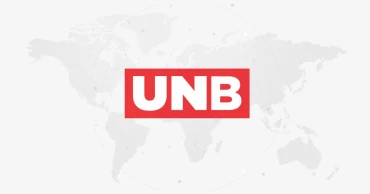UN report
Dhaka world’s 2nd largest city with 36.6 million people: UN report
A new United Nations report shows that Indonesia’s capital Jakarta has become the world’s largest city with 41.9 million people while Bangladesh’s Dhaka ranks second with a population of 36.6 million.
According to the UN’s World Urbanization Prospects 2025 report, Japan’s Tokyo’s population has held fairly steady at 33.4 million, pushing it down to third place while Dhaka, one of the world’s most crowded capitals, climbed from ninth to second and is projected to become the world’s largest city by 2050.
The report highlights Asia’s dominance in global urban growth, with nine of the world’s top 10 megacities located on the continent.
No haat in densely populated areas: DNCC Mayor
Cities joining Jakarta, Dhaka and Tokyo in the top 10 include New Delhi (30.2m), Shanghai (29.6m), Guangzhou (27.6m), Manila (24.7m), Kolkata (22.5m) and Seoul (22.5m).
Egypt’s Cairo with 32 million people is the lone non-Asian city on the list.
Dhaka’s rise has been driven largely by an influx of people fleeing rural areas due to flooding, erosion and other climate-change impacts, as well as those seeking better opportunities, said the report.
Jakarta faces similar pressures, with rising sea levels putting up to one-fourth of the city at risk of submersion by 2050, reports AL Jazeera.
How untrammelled expansion combined with poor civic sense turns Dhaka into a nightmare for traffic police
The UN says the number of megacities — those with populations exceeding 10 million — has surged to 33, up from just eight in 1975.
Although Indonesia is constructing a new capital, Nusantara, the UN estimates that Jakarta’s population will continue to grow, adding another 10 million people by mid-century.
The swelling population has fuelled concern over inequality and affordability, issues that have already sparked public protests.
The report also notes that Iran’s capital Tehran, now at nine million people, is struggling with severe water shortages, prompting rationing measures.
In preparing its latest assessment, the UN adopted a new global definition of cities to reduce inconsistencies across countries.
It now classifies a city as a contiguous area of grid cells with at least 1,500 people per square kilometre and a minimum total population of 50,000.
Frequent Earthquakes: Can Dhaka prepare itself for the big one?
3 months ago
UN reports over 600 killed near Gaza humanitarian convoys
At least 15 Palestinians were killed in Israeli airstrikes on Gaza early Friday, while 20 more died in shootings as they waited for humanitarian aid, according to a hospital morgue that received their bodies.
The latest casualties come as the UN human rights office reported Friday that it has recorded 613 deaths near humanitarian convoys and aid distribution points in Gaza, operated by an Israeli-backed American organization since its operations began in late May.
Ravina Shamdasani, spokesperson for the UN rights office, said the agency could not yet attribute responsibility for the killings. However, she stated, “it is clear that the Israeli military has shelled and shot at Palestinians trying to reach the distribution points” run by the Gaza Humanitarian Foundation.
Among those killed in Friday’s airstrikes were eight women and a child, Nasser Hospital confirmed. Of those shot dead while waiting for aid, two were killed near distribution points in Rafah, while 18 others died near trucks delivering supplies in southern Gaza.
The Israeli military has not yet commented on the latest strikes.
Separately, the military confirmed that one Israeli soldier was killed in combat in northern Gaza and that an investigation is underway. More than 860 Israeli soldiers have been killed since the conflict began, including over 400 during ground fighting inside Gaza.
94 Palestinians killed in Gaza, including 45 waiting for aid
The surge in violence comes amid renewed diplomatic efforts to halt the war, which has stretched into its 21st month.
Hamas announced Friday that it is holding discussions with other Palestinian factions regarding a ceasefire proposal presented by Egyptian and Qatari mediators.
US President Donald Trump said Tuesday that Israel had agreed to terms for a 60-day ceasefire in Gaza and called on Hamas to accept the proposal before conditions worsen.
Hamas said its final response to the mediators will be given after consultations with other Palestinian groups are completed.
The Gaza Health Ministry reports that the Palestinian death toll in the enclave has surpassed 57,000. The ministry does not distinguish between civilian and militant casualties but says over half of the dead are women and children.
The war began when Hamas-led militants launched an attack on southern Israel, killing approximately 1,200 people and taking around 250 hostages.
Since the opening of aid distribution sites in Gaza in May, Palestinian witnesses and the Health Ministry say hundreds have been killed or wounded by Israeli troops while attempting to access supplies.
The Israeli military insists it has only fired warning shots, denies targeting civilians intentionally, and says it is investigating reports of harm to non-combatants.
8 months ago
UN report finds brutal, systematic repression; calls for justice
Bangladesh’s previous government and security and intelligence services, alongside violent elements associated with the Awami League, systematically engaged in a range of serious human rights violations during last year’s student-led protests, says a report by the UN Human Rights Office released on Wednesday.
Drawing on testimony of senior officials and other evidence, it also found an official policy to attack and violently repress anti-government protesters and sympathisers, raising concerns as to crimes against humanity requiring urgent further criminal investigation.
Former senior officials directly involved in handling the protests and other inside sources described how the former Prime Minister – Sheikh Hasina and other senior officials directed and oversaw a series of large-scale operations, in which security and intelligence forces shot and killed protesters or arbitrarily arrested and tortured them.
Based on deaths reported by various credible sources, the report estimates that as many as 1,400 people may have been killed between 1 July and 15 August, and thousands were injured, the vast majority of whom were shot by Bangladesh’s security forces.
UN report finds widespread human rights violations by Hasina regime
Of these, the report indicates that as many as 12-13 percent of those killed were children. Bangladesh Police reported that 44 of its officers were killed.
The protests were triggered by the High Court’s decision to reinstate a quota system in public service jobs but were rooted in much broader grievances arising from destructive and corrupt politics and governance that had entrenched economic inequalities.
To remain in power, the former government tried systematically to suppress these protests with increasingly violent means, the report finds.
“The brutal response was a calculated and well-coordinated strategy by the former government to hold onto power in the face of mass opposition,” said UN Human Rights Chief Volker Turk.
Dr Yunus urges Oman to reopen visas for Bangladeshi workers
“There are reasonable grounds to believe hundreds of extrajudicial killings, extensive arbitrary arrests and detentions, and torture, were carried out with the knowledge, coordination and direction of the political leadership and senior security officials as part of a strategy to suppress the protests.
The testimonies and evidence we gathered paint a disturbing picture of rampant State violence and targeted killings, that are amongst the most serious violations of human rights, and which may also constitute international crimes. Accountability and justice are essential for national healing and for the future of Bangladesh,” he added.
At the request of the Chief Adviser Prof Mohammed Yunus, the UN Human Rights Office in September dispatched a team to Bangladesh, including human rights investigators, a forensics physician and a weapons expert, to conduct an independent and impartial fact-finding into the deadly events.
The interim government extended significant cooperation with the inquiry, granted the access that was requested, and provided substantial documentation.
The report found patterns of security forces deliberately and impermissibly killing or maiming protesters, including incidents where people were shot at point-blank range.
The report examined in detail the emblematic case of Abu Sayed, among others, who was filmed shouting “shoot me” at police with his arms spread wide apart at a protest at Begum Rokeya University in Rangpur.
Using video footage, images and geo-location technology, investigators reconstructed his killing to corroborate testimonies of how it occurred.
A forensic analysis concluded his injuries were consistent with his having been shot at least twice with shotguns loaded with metal pellets, from a distance of about 14 metres.
The report concludes there are reasonable grounds to believe that Abu Sayed was the victim of a deliberate extrajudicial killing by the police.
Having been at the forefront of the early protests, women, including protest leaders, were also subjected to arbitrary arrests, torture and ill-treatment and attacks by security forces and Awami League supporters.
The report documents gender-based violence, including physical assaults and threats of rape, aimed at deterring women from participating in protests.
It also found police and other security forces killed and maimed children, and subjected them to arbitrary arrest, detention in inhumane conditions and torture. In one of several deadly cases documented, a 12-year-old protester in Dhanmondi died from internal bleeding caused by some 200 metal shot pellets.
Also among those killed were very young children who were brought by their parents to protests, or who were shot as bystanders. In one case in Narayanganj, a six-year-old girl was killed by a bullet to the head while standing on the roof of her building observing violent clashes at a protest.
On 5 August – the final and one of the deadliest days of the protests – a 12-year-old boy who was shot by the police in Azampur recalled that police were “firing everywhere like rainfall”. He described seeing at least a dozen dead bodies.
The report also documents cases in which security forces denied or obstructed critical medical care for injured protesters, interrogated patients and collected their fingerprints in hospitals, intimidated medical personnel and seized hospital CCTV footage without due process, in an apparent effort to identify protesters and to conceal evidence of the extent of violence by State forces.
It also documents troubling instances of retaliatory killings and other serious revenge violence targeting Awami League officials and supporters, police and media, as the former Government started to lose control of the country.
Hindus, Ahmadiyya Muslims and indigenous people from the Chittagong Hill Tracts were also subjected to human rights abuses.
While some 100 arrests in relation to attacks on distinct religious and indigenous groups have reportedly been made, the perpetrators of many other acts of revenge violence and attacks on such groups still enjoy impunity, the report says.
The report provides a detailed set of recommendations to reform the security and justice sectors, abolish a host of repressive laws and institutions designed to stifle civic and political dissent, and implement broader changes to the political system and economic governance.
“The best way forward for Bangladesh is to face the horrific wrongs committed during this period, through a comprehensive process of truth-telling, healing and accountability and to redress the legacy of serious human rights violations and ensure they can never happen again,” the High Commissioner said.
“My Office stands ready to assist in this vital national accountability and reform process,” he added.
1 year ago
No progress in the level of prejudice shown against women in 10 years: UN report
There has been no progress in the level of bias against women over the previous ten years, with nearly nine out of ten men and women still believing such prejudices globally, according to a new UN report released on Monday (June 12, 2023).
UN Development Programme (UNDP) in its most recent Gender Social Norms Index (GSNI) says , "Half of people worldwide still believe men make better political leaders than women, and more than 40% believe men make better business executives than women."
Also Read: 9 countries inc. Bangladesh release first national estimates of illicit financial flows with UN support
“Social norms that impair women’s rights are detrimental to society more broadly, dampening the expansion of human development,” said Pedro Conceição, head of UNDP’s Human Development Report Office.
A staggering 25 per cent of people believe it is justified for a man to beat his wife, according to the report, reflecting the latest data from the World Values Survey.
The report said that these biases are to blame for the obstacles women encounter, which have taken the form of the denial of women's rights in many regions of the world, the growth of movements opposing gender equality, and an increase in human rights abuses in some countries.
The stark underrepresentation of women in leadership positions is another example of bias in action. Since 1995, the percentage of women serving as heads of State or governments has generally hovered around 10%, and in the job market, they make up less than one-third of executive posts.
The report also sheds light on a broken link between women’s progress in education and economic empowerment.
Also Read: A child or youth died once every 4.4 seconds in 2021: UN report
Women are more skilled and educated than ever before, yet even in the 59 countries where women are now more educated than men, the average gender income gap remains a 39 per cent in favour of men.
“Lack of progress on gender social norms is unfolding against a human development crisis,” Conceição said, noting that the global Human Development Index (HDI) declined in 2020 for the first time on record and again the following year.
“Everyone stands to gain from ensuring freedom and agency for women,” he added.
The UNDP report emphasized that governments have a crucial role in shifting gender social norms, from adopting parental leave policies, that have changed perceptions around care work responsibilities, to labour market reforms that have led to a change in beliefs around women in the workforce.
“An important place to start is recognizing the economic value of unpaid care work,” said Raquel Lagunas, Director of UNDP’s gender team.
The report emphasized that despite the continued prevalence of bias against women, the data shows change can happen.
Also Read: Rights groups slam severe Taliban restrictions on Afghan women as ‘crime against humanity’
An increase in the share of people with no bias in any indicator was evident in 27 of the 38 countries surveyed. The report authors said that to drive change towards greater gender equality, the focus needs to be on expanding human development through investment, insurance, and innovation.
This includes investing in laws and policy measures that promote women’s equality in political participation, scaling up insurance mechanisms, such as strengthening social protection and care systems, and encouraging innovative interventions that could be particularly effective in challenging harmful social norms, patriarchal attitudes, and gender stereotypes.
For example, combatting online hate speech and gender disinformation can help to shift pervasive gender norms towards greater acceptance and equality, according to the report.
The report recommended directly addressing social norms through education to change people’s views, policies and legal changes that recognize the rights of women in all spheres of life, and more representation in decision-making and political processes.
Read more: 90% of countries see decline in human development
2 years ago
Uranium particles enriched to 83.7% found in Iran: UN report
Inspectors from the United Nations nuclear watchdog found uranium particles enriched up to 83.7% in Iran’s underground Fordo nuclear site, a report seen Tuesday by The Associated Press said.
The confidential quarterly report by the Vienna-based International Atomic Energy Agency distributed to member states likely will raise tensions further between Iran and the West over its nuclear program. That’s even as Tehran already faces internal unrest after months of protests and Western anger over sending bomb-carrying drones to Russia for its war on Ukraine.
The IAEA report only speaks about “particles,” suggesting that Iran isn’t building a stockpile of uranium enriched above 60% — the level it has been enriching at for some time.
The IAEA report described inspectors discovering on Jan. 21 that two cascades of IR-6 centrifuges at Iran’s Fordo facility had been configured in a way “substantially different” to what had been previously declared. The IAEA took samples the following day, which showed particles up to 83.7% purity, the report said.
“Iran informed the agency that ‘unintended fluctuations’ in enrichment levels may have occurred during the transition period,” the IAEA report said. “Discussions between the agency and Iran to clarify the matter are ongoing.”
Also Read: Iran’s currency hits new low amid anti-government protests
The IAEA report also said that it would “further increase the frequency and intensity of agency verification activities” at Fordo after the discovery.
Iran’s mission to the United Nations told the AP that Massimo Aparo, a top IAEA official, visited the Islamic Republic last week “and checked the alleged enrichment rate.”
“Based on Iran’s assessment, the alleged enrichment percentage between Iran and the IAEA is resolved,” the mission contended. “Due to the IAEA report being prepared before his trip, his trip’s results aren’t in it and hopefully the IAEA director-general will mention it in his oral report to the board of governors” in March.
A spokesman for Iran’s civilian nuclear program, Behrouz Kamalvandi, also sought last week to portray any detection of uranium particles enriched to that level as a momentary side effect of trying to reach a finished product of 60% purity. However, experts say such a great variance in the purity even at the atomic level would appear suspicious to inspectors.
Also Read: Russia, Iran sending top envoys to UN’s human rights council
Iran’s 2015 nuclear deal limited Tehran’s uranium stockpile to 300 kilograms (661 pounds) and enrichment to 3.67% — enough to fuel a nuclear power plant. The U.S.′ unilateral withdraw from the accord in 2018 set in motion a series of attacks and escalations by Tehran over its program.
Iran has been producing uranium enriched to 60% purity — a level for which nonproliferation experts already say Tehran has no civilian use. The IAEA report put Iran’s uranium stockpile as of Feb. 12 at some 3,760 kilogram (8,289 pounds) — an increase of 87.1 kilograms (192 pounds) since its last quarterly report in November. Of that, 87.5 kilograms (192 pounds) is enriched up to 60% purity.
Uranium at nearly 84% is almost at weapons-grade levels of 90% — meaning any stockpile of that material could be quickly used to produce an atomic bomb if Iran chooses.
While the IAEA’s director-general has warned Iran now has enough uranium to produce “several” bombs, months more would likely be needed to build a weapon and potentially miniaturize it to put it on a missile. The U.S. intelligence community, as recently as this past weekend, has maintained its assessment that Iran isn’t pursuing an atomic bomb.
“To the best of our knowledge, we don’t believe that the supreme leader in Iran has yet made a decision to resume the weaponization program that we judge they suspended or stopped at the end of 2003,” CIA Director Williams Burns told CBS’ “Face the Nation” program. “But the other two legs of the stool, meaning enrichment programs, they’ve obviously advanced very far.”
But Fordo, which sits under a mountain near the holy Shiite city of Qom, some 90 kilometers (55 miles) southwest of Tehran, remains a special concern for the international community. It is about the size of a football field, large enough to house 3,000 centrifuges, but small and hardened enough to lead U.S. officials to suspect it had a military purpose when they exposed the site publicly in 2009.
Meanwhile, a top Defense Department official told the U.S. House of Representative’s Armed Services Committee on Tuesday that Iran could make enough fissile material for one nuclear weapons in under two weeks if Tehran choose to pursue it.
“Iran’s nuclear progress since we left the (deal) has been remarkable,” Colin Kahl said. “Back in 2018, when the previous administration decided to leave the (deal), it would have taken Iran about 12 months to produce one bomb’s worth of fissile material. Now it would take about 12 days.”
Any explanation from Iran, however, likely won’t be enough to satisfy Israel, Iran’s regional archrival. Already, Israel’s recently reinstalled Prime Minister Benjamin Netanyahu has threatened military actions against Tehran. And Israel and Iran have been engaged in a high-stakes shadow war across the wider Middle East since the nuclear deal’s collapse.
Meanwhile Tuesday, Germany’s foreign minister said both her country and Israel are worried about the allegations facing Iran over the nearly 84% enriched uranium.
“We are united by concern about the nuclear escalation on Iran’s part and about the recent reports about the very high uranium enrichment,” Annalena Baerbock said. “There is no plausible civilian justification for such a high enrichment level.”
Speaking in Berlin, Israel’s visiting foreign minister, Eli Cohen, pointed to two options to deal with Iran — using a so-called “snapback” mechanism in the Security Council resolution that enshrined the 2015 nuclear deal to reimpose U.N. sanctions, and “to have a credible military option on the table as well.”
“From our intelligence and from our knowledge, this is the right time to work on these two specific steps,” he said.
3 years ago
Myanmar: UN report urges concerted effort by global community to hold military accountable
The international community must take concerted, immediate measures to stem the spiral of violence in Myanmar, UN High Commissioner for Human Rights Michelle Bachelet said in a new report on Tuesday.
In Myanmar, Bachelet said, the military has engaged in systematic and widespread human rights violations and abuses – some of which may amount to war crimes and crimes against humanity
The report, released for the 49th regular session of the UN Human Rights Council, said Myanmar's military and security forces have shown a flagrant disregard for human life, bombarding populated areas with airstrikes and heavy weapons and deliberately targeting civilians, many of whom have been shot in the head, burned to death, arbitrarily arrested, tortured or used as human shields, according to message received from Geneva.
Read: New report reveals weapons transferred to Myanmar military junta by UN Member States
Citing the determination of Myanmar's people in their opposition to the coup, Bachelet called on the international community to do all it can to resolve the crisis and hold perpetrators of gross violations of international human rights law accountable.
"Throughout the tumult and violence of the past year, the will of the people has clearly not been broken. They remain committed to seeing a return to democracy and to institutions that reflect their will and aspirations," Bachelet said.
Covering the period since the 1 February 2021 military takeover, the report is based on interviews with over 155 victims, witnesses, and advocates, whose accounts were corroborated with satellite imagery, verified multimedia files, and credible open-source information.
Its findings, however, represent only a fraction of the violations and abuses Myanmar’s people have been subjected to since the coup.
At least 1,600 people have been killed by security forces and their affiliates and more than 12,500 people have been detained.
At least 440,000 others have been displaced and 14 million are in need of urgent humanitarian assistance, the delivery of which has largely been blocked by the military in new and pre-existing areas of need.
The report concluded that there were reasonable grounds to believe the military, the Tatmadaw, had engaged in violence and abuse as part of a widespread and systematic attack directed against civilians – patterns of conduct that may amount to crimes against humanity.
Mass killings have taken place. In July in Sagaing Region, soldiers killed 40 individuals in a series of raids; villagers found the remains of some victims with their hands and feet still tied behind their backs.
In December in Kayah State, soldiers burned the bodies of up to 40 men, women and children; villagers described discovering the remains in several trucks, with bodies found in positions indicating they had tried to escape and were burnt alive.
Detainees reported facing torture and other forms of ill-treatment during lengthy interrogations in military detention centres across Myanmar.
This reportedly included suspension from the ceiling without food or water; being forced to stand for extended periods while in solitary confinement; electrocution, sometimes alongside injection of unidentified drugs; sexual violence, including rape; and forcing Muslim detainees to ingest pork.
While most of the gross human rights violations documented were carried out by security forces, at least 543 individuals – including local administrators, their families and alleged informants – were also reportedly killed due to their perceived support of the military. Anti-coup armed elements claimed responsibility for 95 of the incidents.
Read: EU imposes restrictive measures on 22 individuals, 4 entities in Myanmar
"Meaningful action by the international community is urgently needed to stop yet more individuals from being stripped of their rights, their lives and their livelihoods," Bachelet said.
"The appalling breadth and scale of violations of international law suffered by the people of Myanmar demand a firm, unified, and resolute international response."
3 years ago
Asia, Pacific must avoid K-shaped recovery: UN report
The Asia-Pacific region needs large, yet attainable, investments in resilience to protect development gains amid a fragile and inequitable post-COVID-19 economic recovery, says a report released on Tuesday.
The report was released by the United Nations Economic and Social Commission for Asia and the Pacific (ESCAP) in Bangkok.
Also Read: ADB forecasts developing Asian economies in recession
The Economic and Social Survey of Asia and the Pacific 2021: Towards post-COVID-19 resilient economies forecasts that, on average, developing Asia-Pacific economies are expected to grow by 5.9 per cent in 2021 and 5 per cent in 2022, after having experienced an estimated contraction of 1 per cent in 2020.
Despite a reasonably strong rebound expected in 2021, a “K-shaped recovery” is likely, with poorer countries and more vulnerable groups marginalized in the post-pandemic recovery and transition period.
The Survey estimates that because of the pandemic, an additional 89 million people in the region could have been pushed back into extreme poverty in 2020 at the $1.90 per day threshold, erasing years of progress in poverty reduction.
Working-hour losses in 2020 equaled 140 million full-time jobs, while severe disruptions of economic activity and education are likely to have caused a significant setback to human capital accumulation and productivity in the region.
For a more robust and inclusive recovery, the Survey calls for a more synchronized COVID-19 vaccination programme across countries and highlights opportunities to leverage regional cooperation.
At the same time, it recommends that fiscal and monetary support should be sustained, as premature tightening could increase long-term scars.
“COVID-19 is a shock like no other and it requires a response like no other,” said Armida Salsiah Alisjahbana, United Nations Under-Secretary-General and Executive Secretary of ESCAP.
“The time is now for the Asia-Pacific region to seize this opportunity to speed up and make its transition towards more resilient, equitable, and green development the centerpiece of the post-pandemic economic recovery.”
Looking beyond the pandemic, the Survey examines the broader risk landscape facing Asia-Pacific countries, including epidemics, natural disasters and financial crises.
It finds that adverse shocks, both economic and non-economic, result in permanent economic, social and environmental losses, and advises countries to take a more comprehensive approach to building resilience against future shocks.
Specifically, the Survey proposes a “build forward better” policy package for resilient post-COVID-19 economies that aims to ensure universal access to healthcare and social protection, close the digital divide and strengthen climate and clean energy actions.
It estimates that the package would reduce the number of people living in poverty in the region by almost 180 million people and cut carbon emissions by about 30 per cent in the long run.
Notably, the package would result in a modest fiscal and debt burden if accompanied by bold policy actions, such as ending fossil fuel subsidies and introducing a carbon tax.
Among other potential financing solutions, the Survey also recommends debt swaps-for-development initiatives for countries with special needs and those with limited fiscal space.
It also calls for international assistance to least developed countries burdened with significant “resilience gaps.”
For his part, United Nations Secretary-General Antonio Guterres has recommended in a policy brief on Preventing Debt Crises In the Era of COVID-19 and Beyond: The Time to Act is Now, that countries address immediate liquidity constraints; debt overhangs and creating space for investment in crisis response, the Sustainable Development Goals and climate action; and reformation of the international debt architecture.
In conclusion, the Survey recommends that countries in the region should respond aggressively to adverse shocks to minimize the reversal of hard-won development gains. Swift and robust policy responses are needed to safeguard sustainable development in crisis times, and risk management must become central to development planning and policymaking.
Produced annually since 1947, the Economic and Social Survey of Asia and the Pacific is the oldest United Nations report on the region’s progress.
The Survey provides analyses to guide policy discussion on the current and emerging socio-economic issues and policy challenges to support inclusive and sustainable development in the Asia-Pacific region.
4 years ago
17% of food production globally wasted, UN report estimates
Instead of finishing your leftovers, you let them go bad and buy takeout.
4 years ago
Forced displacement passes 80 mln globally by mid-2020: UN report
The global forced displacement has surpassed 80 million by mid-2020, although the full picture for the year is yet to be established, the UN refugee agency UNHCR said in a report released Wednesday in Geneva.
5 years ago
COVID-19 could push over 1 bln into extreme poverty: UNDP
An additional 207 million people could be pushed into extreme poverty by severe long-term impact of the coronavirus pandemic, bringing the total number to more than 1 billion by 2030, according to a new study from the UN Development Programme (UNDP).
5 years ago



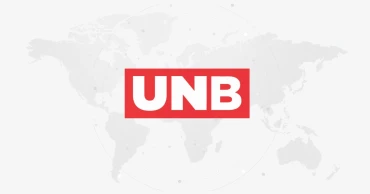
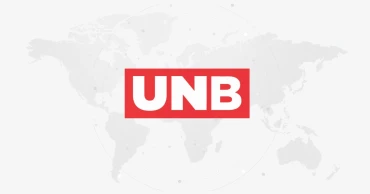
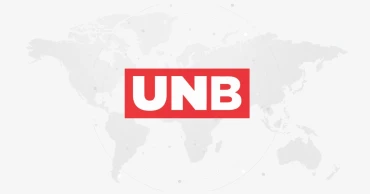
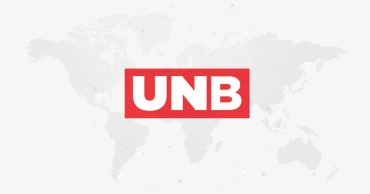
.jpg)

